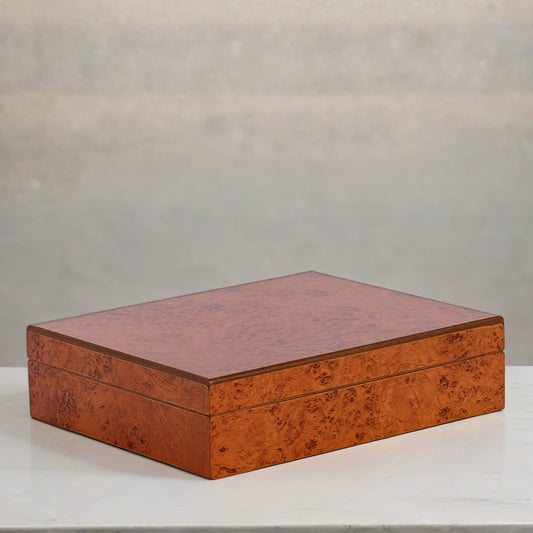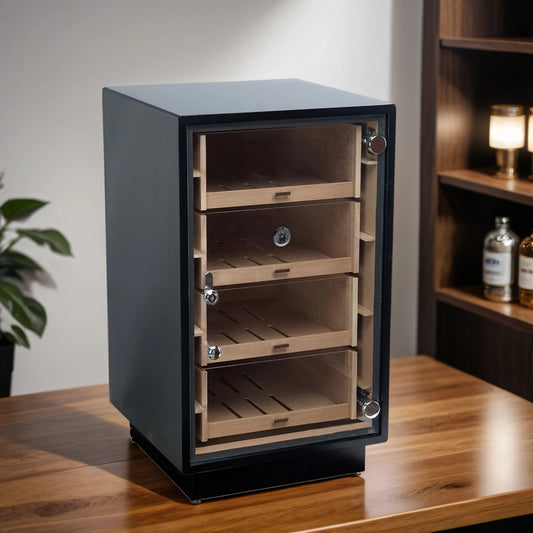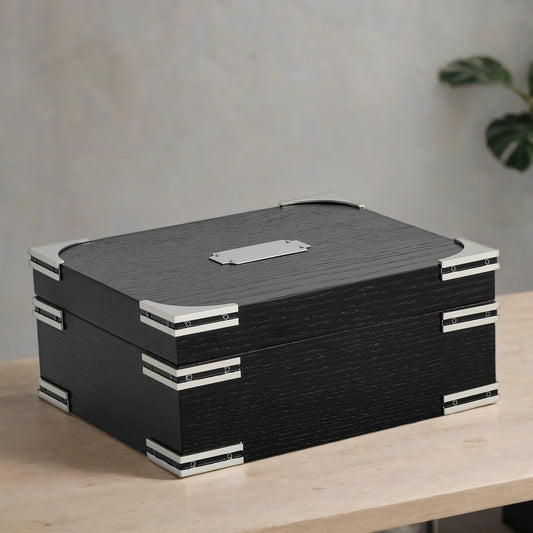
Share
Cigar Sickness: Causes, Symptoms, and How to Avoid It
Smoking cigars is often seen as a relaxing, slow-paced activity. But when it’s done too quickly, it can result in a condition known as cigar sickness or feeling "nic sick", an uncomfortable reaction caused by consuming too much nicotine.
If you’ve ever felt nauseous, dizzy, or lightheaded after smoking, you’re not alone. Here, we’ll explore what causes this reaction, how to prevent it, and most importantly, how to get rid of a cigar buzz if it hits you unexpectedly.
What is Cigar Sickness?
Cigar sickness is essentially nicotine sickness, caused by the body’s reaction to an overload of nicotine. According to the Centers for Disease Control and Prevention (CDC), nicotine is a stimulant that can cause symptoms such as nausea, headaches, dizziness, cold sweats, and even vomiting when consumed in high amounts.
Since cigars often contain significantly more nicotine than cigarettes, the symptoms can set in more intensely. In some cases, people feel the effects of a “cigar hangover” hours later. So can cigars make you sick? Absolutely, especially if you smoke too fast, choose a very strong cigar, or smoke on an empty stomach.

Causes of Cigar Sickness
One of the primary causes of feeling sick after smoking a cigar is puffing too quickly. When you smoke rapidly, nicotine enters your bloodstream at a higher rate than your body can handle. This is why cigar sickness is especially common among beginners who haven’t learned how to pace themselves.
Additionally, stronger cigars with higher nicotine content can trigger more intense symptoms. Another common cause is inhaling the smoke, which significantly increases nicotine absorption. Cigars are designed to be puffed, not inhaled deeply, and doing so can lead to symptoms like dizziness and nausea.
The Importance of Pace in Smoking Cigars
To avoid nicotine sickness from cigars, it’s crucial to pace yourself. Ideally, you should take one puff every 30 to 60 seconds. This slow smoking pace allows nicotine to enter your system gradually, reducing the chance of feeling sick after a cigar. Think of it like sipping a fine whiskey, slow and steady enhances the flavor and prevents discomfort. Smoking too fast not only risks cigar sickness, it also overheats the tobacco, making the flavor harsh.
How Long Does Cigar Nausea Last?
If you’ve ever wondered how long cigar nausea lasts, the answer depends on the amount of nicotine consumed and your tolerance. Mild cases may fade within 30 minutes to an hour. In stronger cases, especially if you’ve smoked a large cigar too fast, the effects can linger for several hours, sometimes leaving you with a “cigar hangover” into the next day.
How to Prevent Cigar Sickness
To prevent feeling sick after a cigar, it’s essential to follow a few basic guidelines.
To reduce your risk of cigar sickness, follow these guidelines:
- Smoke slowly to limit nicotine intake.
- Eat a meal before smoking to help your body process the nicotine.
- Choose milder cigars if you’re new or have a lower tolerance.
- Avoid inhaling, and stop smoking if symptoms appear.
Quick Cigar Sickness Prevention Checklist
- Eat a balanced meal before smoking
- Puff every 30–60 seconds
- Choose mild-to-medium strength cigars
- Stay hydrated
- Avoid alcohol if you’re feeling lightheaded
- Stop at the first sign of nausea

How to Get Rid of Cigar Sickness
If you’re already feeling unwell, you’re probably wondering how to cure cigar sickness. First and foremost, stop smoking. Continuing will only make the symptoms worse. Here are some of the most effective ways to get rid of cigar sickness and find your center again.
If you’re already feeling unwell, here’s how to get rid of cigar sickness quickly:
- Stop smoking: continuing will make symptoms worse.
- Consume sugar: a packet of sugar or a sweet drink can help offset nicotine’s effects.
- Hydrate: drink water or a sports drink to flush out nicotine.
- Get fresh air: step outside or into a well-ventilated space.
- Eat something: a light snack can reduce nausea.
- Rest: recline and relax until symptoms pass.
Nicotine affects everyone differently, so recovery time varies. If symptoms persist beyond 24 hours, consult a medical professional.
Smoking Cigars for Enjoyment, Not the Buzz
Cigars should be savored, not rushed. When you smoke too quickly, not only do you risk cigar sickness, you miss out on the nuanced flavors of the tobacco. If you smoke with the sole aim of getting a nicotine buzz, you’re far more likely to feel sick. Next time, grab a fine stick from your humidor, settle into a comfortable chair, and enjoy it at a leisurely pace.
Conclusion
Smoking a cigar too quickly can lead to an unpleasant case of cigar sickness. By pacing yourself, eating beforehand, and choosing the right strength, you can enjoy your experience without discomfort. And if you do get sick, remember the cigar sickness cure is simple: stop smoking, take sugar, hydrate, and let your body recover. Cigars are about pleasure, not pain: slow down and savor the experience.
Frequently Asked Questions
Why does nicotine make me feel sick?
Nicotine can cause nausea, dizziness, and cold sweats because it stimulates your nervous system and raises your heart rate. When your body gets more nicotine than it’s used to, it can trigger these symptoms, especially if you’re smoking on an empty stomach or puffing too quickly.
Can cigars make you sick even if you don’t inhale?
Yes. Cigars contain enough nicotine to cause sickness through absorption in your mouth’s lining alone. Inhaling isn’t necessary to experience cigar sickness: the nicotine still enters your bloodstream through oral mucosa.
What is the fastest cigar sickness cure?
The quickest cigar sickness cure is to stop smoking immediately, consume sugar, drink water, and get fresh air. Sugar can help balance the effects of nicotine, while hydration and oxygen support faster recovery.
How long does cigar nausea last?
Mild nicotine-related nausea usually fades within 30 to 60 minutes. In stronger cases, especially after a large or strong cigar, cigar nausea can last several hours and may leave you feeling sluggish the next day.
How can I prevent getting sick after smoking a cigar?
To avoid feeling sick after smoking a cigar, eat before smoking, pace your puffs at 30–60 seconds apart, stay hydrated, and choose mild-to-medium blends if you have a low tolerance. Avoid alcohol if you’re prone to dizziness.
Is there a difference between cigar sickness and a cigar hangover?
Yes. Cigar sickness refers to the immediate effects of too much nicotine, like nausea and dizziness. A “cigar hangover” is the lingering discomfort, such as headaches and fatigue, that can last into the next day.












